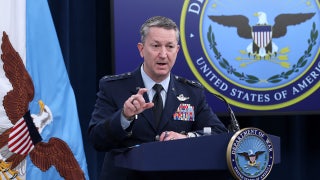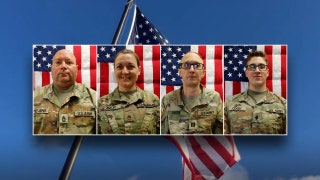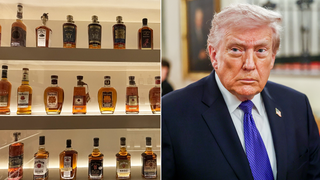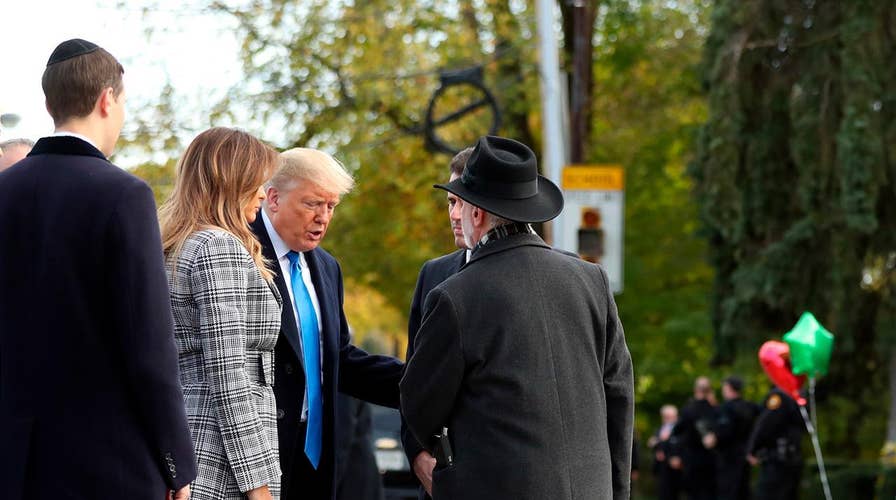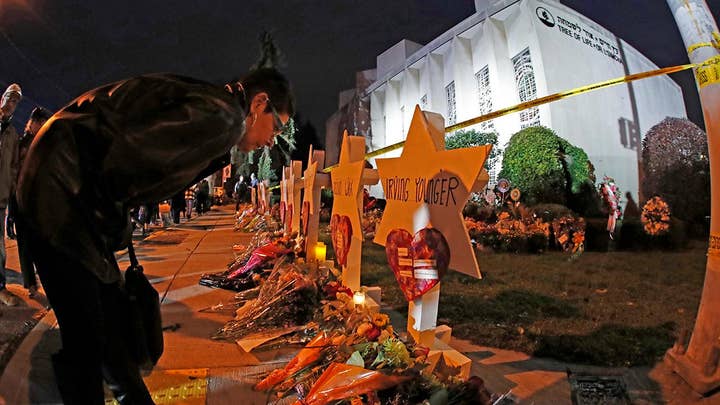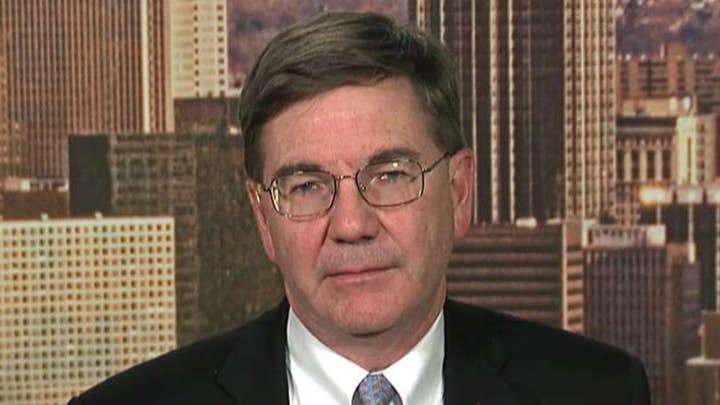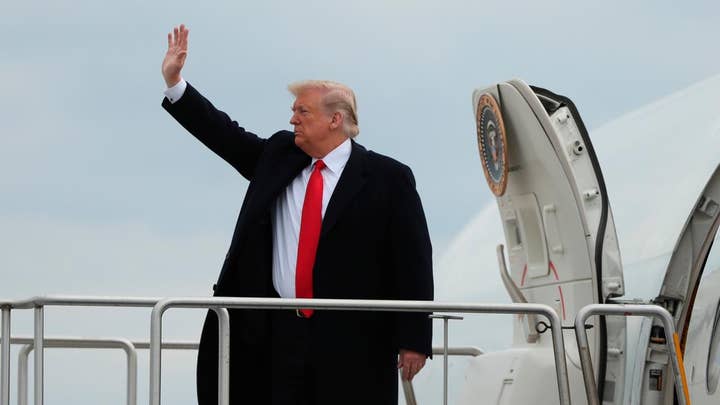President Trump arrives at Tree of Life synagogue
President Trump, first lady, Ivanka Trump and Jared Kushner pay their respects at the Tree of Life synagogue.
President Trump on Tuesday visited the synagogue in Pittsburgh where a gunman over the weekend opened fire and killed 11 people in the bloodiest anti-Semitic attack in U.S. history.
The president traveled to Squirrel Hill, the historic hub of the city's Jewish community and the location of Tree of Life synagogue. Trump was accompanied by first lady Melania Trump, his daughter, Ivanka, son-in-law Jared Kushner, Treasury Secretary Steve Mnuchin and White House Chief of Staff John Kelly.
Accompanied by Rabbi Jeffrey Myers, the president and first lady laid white roses and stones from the White House - a Jewish tradition - at the makeshift memorial outside the synagogue.

President Donald Trump and first lady Melania Trump arrive at Pittsburgh International Airport in Coraopolis, Pa., Tuesday, Oct. 30, 2018, following last weekends shooting at Tree of Life Synagogue in Pittsburgh. (AP Photo/Andrew Harnik)
Trump’s visit came on the day that Pittsburgh’s Jewish community held the first in a weeklong series of funerals for the 11 people killed -- allegedly by 46-year-old Robert Gregory Bowers -- amid complaints in some quarters that his presence would take too much focus off the dead. Some critics have accused Trump of fomenting racial and ethnic hostility and have said he deserves some of the blame for the bloodshed.
"Well, I'm just going to pay my respects," Trump told Fox News' Laura Ingraham on Monday. "I'm also going to the hospital to see the officers and some of the people that were so badly hurt."
Following his time at the synagogue, Trump traveled to the University of Pittsburgh Medical Center to visit the injured victims, including four police officers wounded by gunfire during Saturday's attack, and the hospital staff.
Trump's trip is set against the backdrop of national unease over incidents of political violence and hate, and questions about his credibility as a unifier. Since his 2016 campaign for the White House, critics say Trump has been slow to denounce white nationalists, neo-Nazis and other hate-filled individuals and groups that found common cause with his nationalistic political rhetoric.
Hundreds of protestors gathered a few blocks from the synagogue during Trump's visit.
Local and religious leaders were divided on whether Trump should visit. Pittsburgh Mayor Bill Peduto, a Democrat, told reporters before the visit was announced that the White House ought to consult with the families of the victims about their preferences and asked that the president not come during a funeral.
Neither he nor Pennsylvania Democratic Gov. Tom Wolf planned to appear with Trump Tuesday.
Peduto's spokesman said the mayor's "sole focus" is on the funerals for victims and supporting their families.
"He is making no other appearances, whether with the president or anyone else," the spokesman said. "That is his focus for the rest of the week, too, as funerals are scheduled for every day through Friday."
Beth Melena, Wolf's campaign spokeswoman, said the governor did not plan to return to Pittsburgh as part of Trump's visit on Tuesday. She said he based his decision on input from the victims' families, who told him they did not want the president to be there on the day their loved ones were being buried.
"Community leaders expressed to the governor that they did not feel it was appropriate for Trump to come, so the governor made a decision not to join him on his visit out of respect for the families and the community," Melena said.
House Speaker Paul Ryan, R-Wis., House Minority Leader Nancy Pelosi, D-Calif, Senate Majority Leader Mitch McConnell, R-Ky., and Senate Minority Leader Chuck Schumer, D-N.Y., also all declined to accompany the president on his trip to Pittsburgh. Ryan, however, tweeted that he was "grateful" to the president for traveling to Pittsburgh.
Myers, the Pittsburgh rabbi who watched his congregants die at the Tree of Life synagogue, has faced backlash after telling reporters “the president of the United States is always welcome.”
“I’m a citizen. He’s my president. He is certainly welcome,” Myers said.
Prominent Pittsburgh Republican Jim Roddey told WPXI that Trump needs to steer clear of any political talk when he visits.
In Squirrel Hill, Barry Werber, 76, who said he survived the massacre by hiding in a dark storage closet as the gunman rampaged through the building, said he hoped Trump wouldn't visit, noting that the president has embraced the politically fraught label of "nationalist."
"It's part of his program to instigate his base," Werber said, and "bigots are coming out of the woodwork."
He continued, “(Trump) has been active in the midterms…and I hope he’s not going to come here and have a rally. That’s not what the city needs. It’s not what the people want.”
Asked Monday if Trump has done enough to condemn white nationalism, White House Press Secretary Sarah Huckabee Sanders said the president "has denounced racism, hatred and bigotry in all forms on a number of occasions."
She added: "Some individuals — they're grieving, they're hurting. The president wants to be there to show the support of this administration for the Jewish community. The rabbi said that he is welcome as well."
Bowers was transferred from Allegheny County Jail to Butler County Prison on request of U.S. marshals Tuesday. A source from the U.S. Attorney’s Office told Fox News that Bowers was released from the hospital Monday for court and never went back there.
Fox News’ Barnini Chakraborty, Matt Finn, Madelin Fuerste and The Associated Press contributed to this report.


